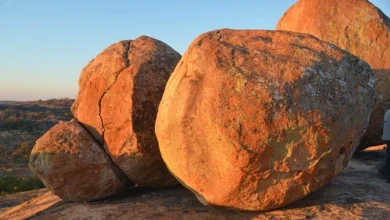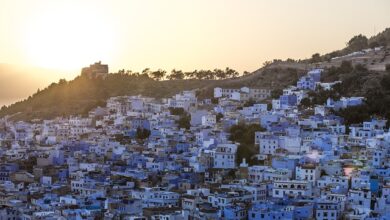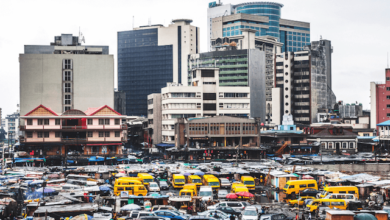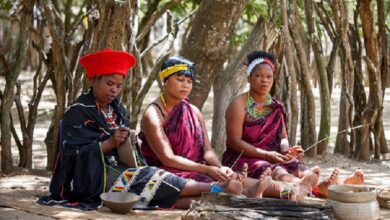Is South Africa in the footsteps of Zimbabwe?
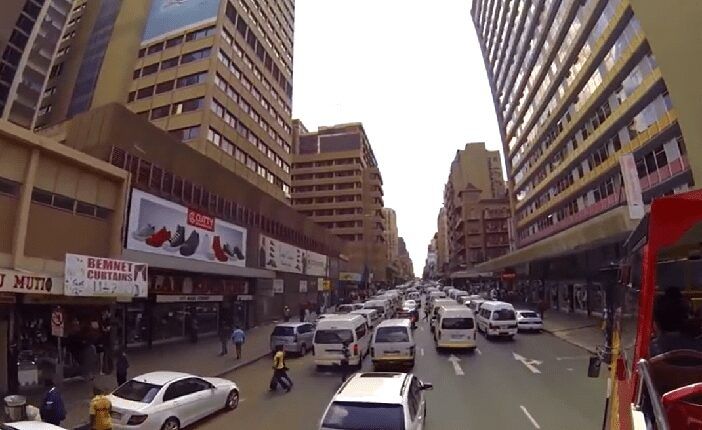
The government of South Africa announced on September 4 that the country’s gross domestic product fell by 0.7 percent, while it was expected to increase by 0.6 percent. According to the magazine “Business Insider”, the decline in the second quarter follows a contraction of 2.6% of the economy. It’s official: South Africa is in recession, the first in a decade.
Coincidence or evidence?
The news comes soon after the controversial decision of the African National Congress (ANC) to implement constitutional changes allowing the state to seize land without compensation (According to Newsweek, the civil rights group AfriForum says the attacks against white farmers have multiplied.) Has the ANC’s attack on property rights been at the root of the country’s recent economic problems? It is probably too early to say.
The article Business Insider makes no mention of land seizures. He cites a drought in the Western Cape that has hampered agricultural performance in the region, as well as unexpected declines in activity in South Africa’s trade and transport sectors, as key factors. However, it should be noted that several observers, from the Wall Street Journal to the South African farmers themselves and the economist Walter Williams, had predicted that South Africa’s decision would have disastrous consequences.
The Zimbabwe disaster
As public policy analysts have pointed out, we have seen this in the disastrous reign of Robert Mugabe in Zimbabwe. Truth be told, there has been little to praise in Mugabe’s almost four-decade reign, especially his decision to seize land from the landlords who plunged Zimbabwe into ruin. The magazine “The Economist” in an article published in 2017 shortly after his surprising eviction, explained that Mugabe made the decision out of frustration after legislators rejected his proposal to amend the constitution to give him more power. After his proposed constitutional amendment was rejected, with 55% of votes against 45%, he lost his temper, triggering an inconsiderate campaign of land grabbing. In a very short time, one of the most advanced economies in Africa has collapsed.
When tax revenues plummeted due to the lack of export crops, Mugabe ordered the governor of the Zimbabwe Reserve Bank to print more money. Mugabe said at the time that “the traditional economy does not fully apply in this country” and add, “I will print and print, and sign the currency… because we need money.” Mugabe’s ignorance of the basic economy, called “Mugabenomics”, led to the country’s economy falling sharply.
But these are just numbers. Bob Herbert, in a 2009 article titled “Zimbabwe Dying”, painstakingly describes human costs. “If you want to see hell on earth, go to Zimbabwe where the madman Robert Mugabe has plunged the country into such a state of ruin that medical care for most people has virtually ceased to exist. Life expectancy is now the lowest in the world: 37 years for men and 34 years for women. A cholera epidemic is raging. People became sick with anthrax after eating the rotting flesh of animals that died of the disease.” When the ANC announced its land policy in March, the Wall Street Journal predicted that the idea was likely to replicate Zimbabwe’s experience.
The heart of any economy is the right of ownership
It’s a simple formula, explained the editors. Land confiscations destabilize investors. The agricultural sector slows down and then collapses. The government, needing money, is printing more money. Inflation follows, then happens hyperinflation. Soon, a once prosperous nation falls into poverty, or “hell on earth,” to use Herbert’s expression.
We do not yet know if the recession in South Africa the result of a drought or its land grabbing, but it does not matter, we know how the story ends. Property rights are one of the pillars of prosperity and a healthy economy. The Fraser Institute, which measures annually the level of economic freedom of nations, considers it to be the heart of economic freedom. “The protection of persons and their property acquired legitimately is a central element of economic freedom and civil society. Indeed, it is the most important function of the government,” wrote the authors in their report of 2017.
Fortunately, there is still time for South Africa to change course, and evidence suggests that President Cyril Ramaphosa may not be as enthusiastic as he might sound about this policy. Ben Cousins, chair of research on poverty, land and agrarian studies at the University of Western Cape, recently told Newsweek: “It is clear that Ramaphosa is under pressure from his own party, especially from factions aligned with the former president, Jacob Zuma, or other factions, and that he did not have much choice. He was subjected to strong pressure.”
The unexpected recession in South Africa may be the warning the country needs. There is still time to reject Mugabenomics and avoid the same fate as Zimbabwe.

